3rd May 2022
This year’s LAMMA Show will see Frontier Agriculture’s digital, environmental and sustainability experts team up to host a series of talks; specifically covering funding options linked to sustainable farming practices and how to measure the impact of new approaches.
The role of online and mobile tools will also be covered in the presentations, as Frontier’s digital leads discuss solutions to help with field-scouting, farm observations, scheme mapping and record-keeping.
Helping farmers make the most of changing policy
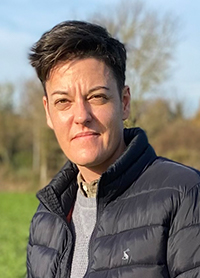 Speaking of the talks, Frontier’s lead on sustainability, Jim Stotzka says, “Farmers are no longer expected to be experts in crop production alone: there’s a greater onus on commitments to environmental land management and the expectations can be confusing.
Speaking of the talks, Frontier’s lead on sustainability, Jim Stotzka says, “Farmers are no longer expected to be experts in crop production alone: there’s a greater onus on commitments to environmental land management and the expectations can be confusing.
“We know many farmers will face challenges as they try to navigate this transition which is why we have developed our seven-step sustainable crop production model.
“The journey is different for everyone and while some are already doing elements of sustainable farming, others may not know where to start. A lot of the principles are intertwined with new standards or agri-environment schemes – even compliance rules – and the expectations aren’t always clear. We want to give farmers every opportunity to access expert advice and ask the questions they need to.”
Linking in with additional funding sources
Part of Frontier’s specialist environmental division Kings, technical advisor, Jim Egan is participating in the talks and makes the point that it’s not just policy makers encouraging new approaches. “Demands are also coming from supply chains, but this can offer some real benefits to farmers. The public funding available through Countryside Stewardship and the ELM scheme has great potential with the right implementation, but there is an array of private funding available for sustainable farming practices too.”
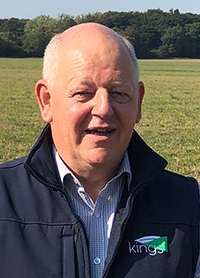 Jim explains that more consumer brands and utilities like water companies are incorporating sustainable land management requirements into their operations. However, a lot of the responsibility can be placed on the farmers growing and supplying the products or working in the catchment areas.
Jim explains that more consumer brands and utilities like water companies are incorporating sustainable land management requirements into their operations. However, a lot of the responsibility can be placed on the farmers growing and supplying the products or working in the catchment areas.
“This is being recognised more, as is the need for support. We’re seeing a lot of private funding options opening up through demonstration trials, water company catchment projects or via woodland grants, and they can make a huge difference to farmers adopting new land management practices.”
Digital solutions are helping project management
As well as highlighting areas of support, the team will cover the benefits of using digital tools from Frontier’s precision farming specialists SOYL, particularly as land management practices come under more scrutiny.
SOYL and sustainability knowledge exchange manager, Edward Jones will share examples of how the new MySOYL app can help farmers manage environmental projects alongside conventional crop production.
“The two can be mutually beneficial when implemented with a whole-farm approach,” he explains. “The MySOYL app has been designed to make this easier and more intuitive for farmers. Many have lots of crop production and farm data to hand already, so it’s about using that in a meaningful way.”
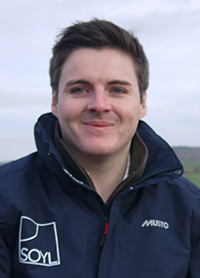 Edward explains that yield data from the farm’s combinable crops is a great place to start. “The MySOYL app stores all of this information – the farmer can be stood in the field examining those poorer performing areas where cash crops don’t typically do as well. They might choose to incorporate static or rotational environmental features instead, making better use of the land and opening up additional revenue streams.
Edward explains that yield data from the farm’s combinable crops is a great place to start. “The MySOYL app stores all of this information – the farmer can be stood in the field examining those poorer performing areas where cash crops don’t typically do as well. They might choose to incorporate static or rotational environmental features instead, making better use of the land and opening up additional revenue streams.
”The app’s mapping and scouting features also make ongoing monitoring and measuring much easier, and Edward and the team will explain how farmers can observe the real-time performance of their whole farm. “Just as you would with a wheat or barley crop, if there are disease or weed pressures affecting Stewardship options, all of this can be logged and monitored.”
Capturing evidence and storing records
Tied to this, the talks will also cover the increased requirements for record-keeping in order to secure funding and meet scheme rules.
“That aspect can be really hard for farmers to keep on top of,” explains Jim Egan. “Many scheme agreements need a portfolio of evidence to show compliance – failure to do it can mean penalties and even loss of funding.
“Good data capture tools can make all the difference. Farmers are often required to show photos of agri-environment activity and how options are delivering results, as well as invoices for seed and any inputs. This is on top of things like soil nutrient data if growing cover crops to improve soil health, or increased beneficials if trying to reduce the use of pesticides. It’s a lot of work and attention to detail.”
Jim and the wider team will use examples from the new MySOYL app to show how all of this information can be recorded and logged electronically, syncing with the desktop equivalent in Frontier’s MyFarm platform so everything is stored in one place.
Presentation programme
Visitors to LAMMA can hear the talks from Frontier, Kings and SOYL at the following times across the two days.
- Funding for sustainable farming (10.00am and 2.00pm both days)
An overview of the public and private sources available, what data and evidence is required and how digital tools like the MySOYL app can help with planning, management and evidence-gathering.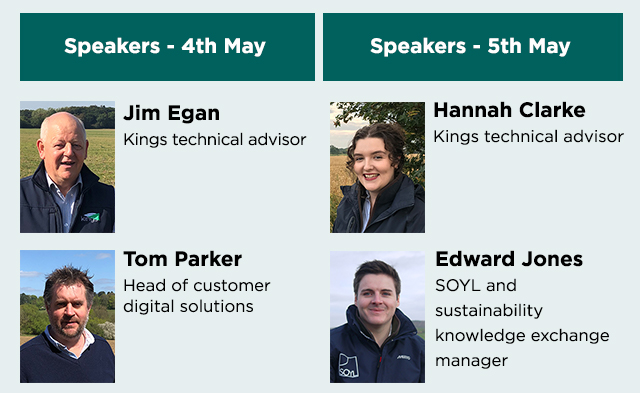
- Measuring the success of a sustainable farming system (11.00am and 3.00pm both days)
A look at practical methods for capturing and recording the impact of sustainable crop production approaches, including how to measure and compare farm data in MySOYL and MyFarm.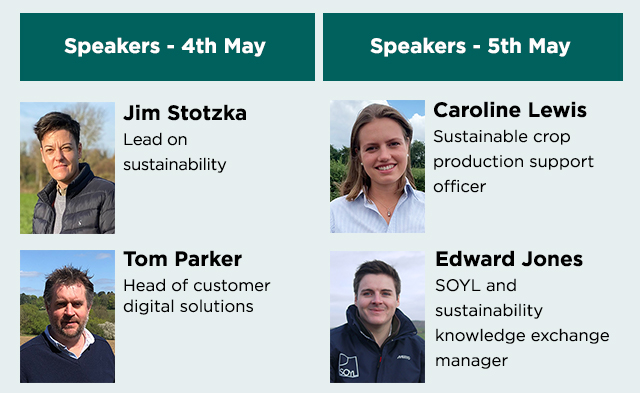
LAMMA 2022 takes place at the NEC, Birmingham on 4th-5th May. Visitors can find the teams from Frontier Agriculture, Kings Crops and SOYL on stand 11.346 in Hall 11.
Visitors to the stand can also earn CPD points if participating in the BASIS Knowledge Trail.
Registration to attend the event is free and can be done at www.lammashow.com.









